Session Information
Description
CASLT’s Virtual PL Days provide a platform for teachers to connect with colleagues, engage in interactive professional learning opportunities, and share best practices. Our experienced team of professional learning facilitators will explore research-informed teaching approaches and strategies to inspire, motivate, and challenge teachers to improve their practice. The sessions will be recorded and participants will also leave each workshop with a ready-to-use teacher tool.
Registration Options
Multiple registration options are available to accommodate scheduling and budgetary constraints:
| Option | Member Price | Non-Member Price* | Student** Price |
| Full day (9:30 a.m. to 3:45 p.m. ET) | $75 + tax | $105 + tax | Free |
| Half day AM (9:30 a.m. to 12:30 p.m. ET) | $40 + tax | $70 + tax | Free |
| Half day PM (12:45 p.m. to 3:45 p.m. ET) | $40 + tax | $70 + tax | Free |
*Includes a one-year CASLT membership.
**Must be an active CASLT Student Member.
Schedule
Each Virtual PL Day will include two streams (one in English and one in French) of four 75-minute workshops. Full day registration includes access to all four workshop blocks, and half day registration (either AM or PM) includes access to two workshop blocks.
| Start Time* | End Time* | Description | |
| 9:30 a.m. | 9:45 a.m. | Welcome and Introduction (Full day or Half day AM registrants) | |
| 9:45 a.m. | 11:00 a.m. | Unlock the Power of Movie Talks: Elevate Your Lessons with Embedded Reading
Language: English Adriana Ramírez |
Inclusive and Innovative: Dive into the Future of FSL Learning with the Neurolinguistic Approach
Language: French Antonia Cetin |
| 11:00 a.m. | 11:15 a.m. | Break | |
| 11:15 a.m. | 12:30 p.m. | Breaking Barriers: Neurodiversity and Additional Language Learning
Language: English Alexandra Arraiz Matute, Tamara Sorenson Duncan, and Jacob Williams |
Using the Equity Audit Process to Foster Inclusion and Diversity in the Additional Language Classroom
Language: French Rubina Sharma |
| 12:30 p.m. | 1:00 p.m. | Break (Full day registrants) | |
| 12:45 p.m. | 1:00 p.m. | Welcome and Introduction (Half day PM registrants) | |
| 1:00 p.m. | 2:15 p.m. | Debunking Myths and Shifting Paradigms: Embracing Plurilingualism in Language Education
Language: English Quinton Stotz |
Literacy Centres in the Language Classroom
Language: French Josée Le Bouthillier |
| 2:15 p.m. | 2:30 p.m. | Break | |
| 2:30 p.m. | 3:45 p.m. | Redefining Language Teaching and Learning: Harnessing the Power of ChatGPT in the Classroom
Language: English Wei Cai |
Let’s Stop Talking about My Linguistic Insecurity! Instead, Let’s Negotiate My Legitimacy
Language: French Monica Tang |
* Eastern Standard Time
Session Descriptions
English Sessions
Unlock the Power of Movie Talks: Elevate Your Lessons with Embedded Reading
Adriana Ramírez
Have you ever found yourself captivated by a movie scene, wishing you could bring that same level of engagement to your language classroom? Discover the dynamic combination of Movie Talks and Embedded Reading, a powerful duo that transforms lessons into immersive experiences, keeping students engaged and learning. Movie Talks use short video clips to provide Comprehensible Input (CI). Embedded Reading involves creating multiple versions of the same text, starting with a simple baseline and progressively adding more details, vocabulary, and complexity. This scaffolded approach helps students build comprehension of initially challenging texts. In this workshop, you’ll learn how to masterfully blend these two techniques, creating a synergy that introduces more vocabulary, grammar structures, and cultural context. Unlock the door to a world of CI, where language learning becomes an immersive, enjoyable journey.
Teacher Tool: Receive a ready-to-go embedded reading in Spanish, English, or French, complete with comprehension questions and a series of activities to accompany your Movie Talk lessons. This tool will provide content for up to four classes.
Breaking Barriers: Neurodiversity and Additional Language Learning
Alexandra Arraiz Matute, Tamara Sorenson Duncan, and Jacob Williams
Every student deserves the opportunity to thrive in the additional language (L+) classroom, yet learners with communication-based disabilities often miss out on opportunities for multilingual development. This workshop will focus on supporting multilingual development for learners with communication-based disabilities in French immersion and multilingual learners in English programs. Discover how recognizing and valuing neurodiversity can transform your language classroom, make your language programs more inclusive and accessible, and ensure that all students can thrive. By the end of this session, participants will be equipped with research-informed, innovative tools and strategies to enhance their teaching practices and advocate for successful L+ learning for every student in their classroom.
Teacher Tool: Receive an inclusivity checklist for L+ programs. This practical tool will help educators assess and enhance inclusivity in their language classrooms through sections on classroom environment, implicit bias, teaching materials, and student engagement.
Debunking Myths and Shifting Paradigms: Embracing Plurilingualism in Language Education
Quinton Stotz
As Canadian schools rapidly become more plurilingual, many teachers are left wondering how to effectively navigate this linguistic diversity. This session dives into the transformative potential of plurilingualism by debunking three deep-seated myths about language. Grounded in the theoretical underpinnings of the Common European Framework of Reference for Languages (CEFR), participants will explore concepts such as translanguaging and grammaring. We will critically examine how monolingual bias influences classroom practices, learning outcomes, and policy decisions and discuss strategies to counteract deficit views that marginalize students and constrain teachers. Educators will receive practical insights and strategies to foster inclusive language classrooms that honour and leverage the diverse linguistic repertoires of their students. This session is indispensable for educators, learners, and advocates dedicated to advancing plurilingual education and promoting equity in language learning.
Teacher Tool: Receive a set of reflection tools aimed at helping teachers and students validate their plurilingual repertoires and practices. The first tool encourages students to critically review their language learning experiences, attitudes, and competencies, helping them see themselves as legitimate users of the target language. The second tool is designed for both new and experienced teachers and offers a similar introspective opportunity, but with an additional component for reflecting on their teaching practices.
Redefining Language Teaching and Learning: Harnessing the Power of ChatGPT in the Classroom
Wei Cai
Imagine having a versatile, intelligent assistant to support your language teaching efforts, engaging students like never before. Welcome to the future of language education with ChatGPT! This innovative workshop delves into the transformative potential of ChatGPT in creating dynamic, supportive environments for language learning. It will offer concrete guidelines and creative ideas for incorporating ChatGPT into various aspects of language education. Explore how ChatGPT can revolutionize your teaching methods with practical examples, learn strategies for crafting effective prompts that yield desired outcomes, and discover how to seamlessly integrate task-based language teaching principles into your curriculum. Join us to unlock the full potential of ChatGPT and elevate your language teaching to new heights.
Teacher Tool: Receive a ChatGPT activity template to help you plan and implement ChatGPT-driven activities, ensuring you can easily adapt and apply these innovative techniques in your classroom.
French Sessions
Inclusive and Innovative: Dive into the Future of FSL Learning with the Neurolinguistic Approach
Antonia Cetin
Have you ever asked yourself: “How do I get my students talking in French?” Join us for an inspiring exploration at the forefront of French as a second language (FSL) acquisition! Delve into the fascinating intersection of neuroscience and language learning to uncover how Neurolinguistic Approach (NLA) strategies revolutionize the way learners acquire and apply French language skills. This workshop will illuminate how NLA strategies not only facilitate but actively encourage spontaneous communication in French. Through practical demonstrations and insightful discussions, educators will gain valuable insights into fostering a supportive environment where students feel empowered to express themselves confidently in French. Participants will leave energized and equipped with actionable techniques to effectively implement NLA strategies in their classrooms. Get ready to ignite a passion for speaking French among your students and enhance your confidence in guiding them towards linguistic fluency!
Teacher Tool: Receive a comprehensive guide of NLA strategies for teaching oral language structures. Educators will practice these proven techniques during the session to ensure are ready to implement them effectively in their own classrooms.
Using the Equity Audit Process to Foster Inclusion and Diversity in the Additional Language Classroom
Rubina Sharma
Are you ready to lead meaningful changes in your additional language (L+) program but aren’t sure where to start? By acknowledging the need for improvement, educators can take the first step toward transformative change. In this session, participants will engage in the equity audit process to identify and address gaps, omissions, and the under- and overrepresentation of diverse groups in their current resources, lessons, and activities. Designed for instructional leaders, department heads, and teachers of L+ students (including immersion, bilingual, extended, and second/additional language programs), this session will equip participants with the tools and knowledge needed to evaluate how well their programs reflect the diversity of language learners.
Teacher Tool: Receive a sample equity audit tool and skills progression-based program planners (long-range planning tools) that focus on culturally relevant and responsive pedagogy (CRRP). These resources will help educators create more inclusive L+ programming, ensuring their lessons better reflect and serve the diverse population of students they teach.
Literacy Centres in the Language Classroom
Josée Le Bouthillier
Literacy centres are a teaching and learning tool through which students have repeated opportunities to practise literacy-learning targets and explore them more deeply. The centres also allow educators to encourage their students’ autonomy and to differentiate their teaching. Designing pedagogical tasks for the centres — that is, activities that enhance the development of oral, reading, and writing skills — is essential to the quality of students’ learning experiences. How they are integrated into the teaching sequence is just as important. In this session, Josée will explore the principles of designing pedagogical tasks for literacy centres and give examples of tasks that comply with these principles. These tasks are intended not only to captivate and motivate students but also to offer pedagogically rich learning experiences. In addition, because student preparation and the teaching sequence are crucial to the success of literacy centres, Josée will explain the teaching approach that enables students to perform literacy tasks autonomously.
Teacher tool: Receive a detailed infographic designed to guide educators through creating effective teaching tasks for literacy centres, including a clear teaching sequence to enhance student learning outcomes in language and literacy development.
Let’s Stop Talking about My Linguistic Insecurity! Instead, Let’s Negotiate My Legitimacy
Monica Tang
In Canada, French is an additional language (L+) for more than 50 percent of French teachers (ACPI, 2018). On the one hand, working in our L+ may be very satisfying because we can share the unique pleasure of discovering what we can do in another language. On the other hand, we may worry that our French is not good enough, even as teachers. This linguistic insecurity can be paralyzing and keep us from flourishing both personally and professionally. It may even lead us to consider giving up teaching French. However, the key to strengthening our sense of security in our L+ is not the elimination of our errors but 1) valuing our L+ journey and 2) negotiating a legitimate L+ identity by cultivating positive positions. So, what are these ideal positionings for a bilingual person? In this session, by changing the focus from linguistic insecurity to a perspective of legitimacy, we will learn about the ideal positions that we aim to develop as a bilingual person and how we can choose to actively cultivate them as a French teacher, whether French is our first language or our L+.
Teacher tool: The “Ideal positions for a positive bilingual identity” table gives an overview of the attitudes, values, and habits that we should cultivate as an L+ educator and student. The positions are divided into four categories: perception of linguistic identity, perception of language skills, perception of intercultural skills, and belonging to a linguistic community.
Location
Zoom
Presenters
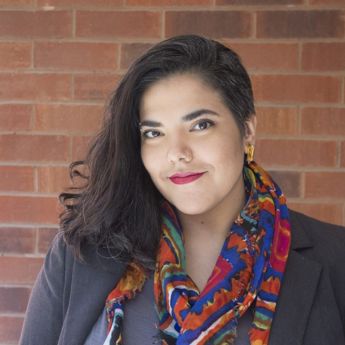
Assistant Professor, Carleton University
Alexandra Arraiz Matute
Dr. Alexandra Arraiz Matute is an Assistant Professor in the Institute of Interdisciplinary Studies at Carleton University. She completed her doctorate in Curriculum Studies & Teacher Development at the Ontario Institute of Studies in Education (OISE) at the University of Toronto. She has an MA in Curriculum Studies from OISE and a BSc in Psychology. She is a passionate community educator and organizer. Her research and pedagogical interests lie at the intersections of identity, culture, race, and migration. Past research focused on the importance of relationships in teaching and learning as sources of healing and resistance for marginalized communities in the mainstream education system. Her approach to teaching is grounded in anti-oppression, equity, and feminist theories; she believes in honouring diverse knowledges while pushing beyond our comfort zones to learn from each other.
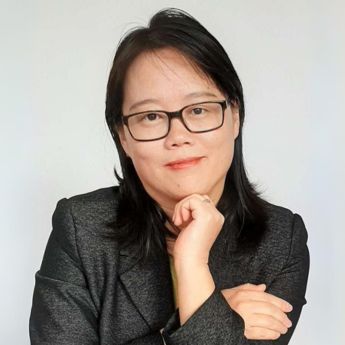
Professor, University of Calgary
Wei Cai
Dr. Wei Cai is a Professor of Chinese in the School of Languages, Linguistics, Literatures and Cultures at the University of Calgary. She is former Chair of the Division of Chinese Studies and Japanese Studies, Director of the Language Research Centre, and President of the Chinese Language Teaching and Research Association. Her research interests include second language listening and second language acquisition. Her major research area is second language listening. Her new book — Teaching and Researching Chinese Second Language Listening — was published by Routledge (Taylor & Francis Group) in 2022.
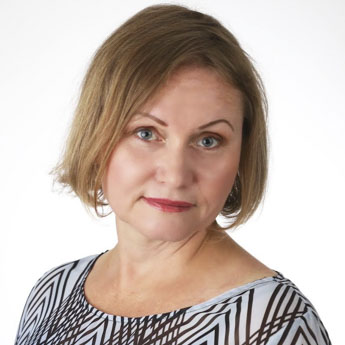
Educational Consultant
Antonia Cetin
Antonia Cetin brings over three decades of dedicated teaching and coaching expertise in French as a Second Language (FSL) and Immersion programs. As an internationally certified DELF-DALF (A1–C2) and Neurolinguistic Approach (NLA) instructor, she is renowned for her transformative workshops and training sessions held nationwide. These sessions are tailored to empower consultants, coaches, and educators with the knowledge and confidence to support French language learners effectively. Antonia’s approach is rooted in research-based teaching practices, creating inclusive environments where the joy of learning French flourishes. Her commitment extends to academia, where she teaches courses on the Common European Framework of Reference for Languages (CEFR) and NLA practices at the University of Ottawa and Western University. As the author and editor of resources on decodehabile.com, Antonia develops instructional modules and engaging stories aimed at helping learners decode and read in French. In recognition of her exceptional contributions to FSL education in Ontario, Antonia was awarded the prestigious Canadian Parents for French McGillivray Award in 2022.
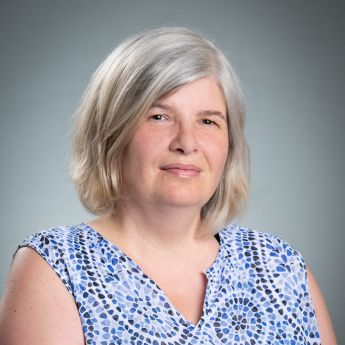
Research Associate, University of New Brunswick
Josée Le Bouthillier
Josée Le Bouthillier is a Research Associate in the Faculty of Education at the University of New Brunswick. Her research interests focus on literacy in second language contexts and teacher education. She offers methods courses on French as a second language in the Bachelor of Education program and on literacy instruction for L+ contexts at the master’s level.
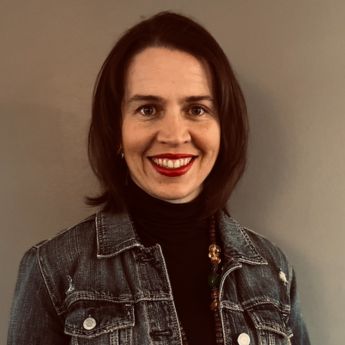
Educator, Author, Trainer, and Coach
Adriana Ramírez
Adriana Ramírez is a Spanish teacher, author, and teacher trainer. She shares her knowledge and experience of over 20 years in the classroom by training teachers on comprehensible input (CI) methodologies. She also trains teachers on incorporating anti-bias and anti-racist work in the language classroom. Adriana has trained teachers in Canada, the US, and Europe. She also holds a double major in Psychology, a degree in Clinical Psychology and a master’s degree in education. Adriana is passionate about sharing the beauty of her country and her people with the world through her novels. A prominent advocate of the #OwnVoices movement, Adriana strongly believes that those who come from traditionally oppressed and colonized countries and territories must reclaim their right to tell their own stories and build their own narratives. Originally from Colombia, she actively works on recuperating the stories that are part of her heritage.
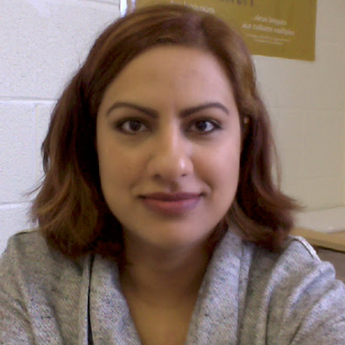
French Immersion Teacher
Rubina Sharma
Ruby Sharma has nearly two decades of experience as a French teacher, department leader, school leader, and system leader in both Core and Immersion FSL programs in York Region District School Board. She is also a course instructor and developer for FSL Additional Qualification (AQ) courses. Ruby embarked on her journey with the FSL Disrupt team through their shared Twitter Professional Learning Network. She was immediately captivated by the dynamic and open dialogue led by Mandy, Mimi, and Amanda, focusing on diversifying texts in French as a Second Language (FSL). Their effective use of technology and social media to drive tangible change across education boards and districts highlighted their collaborative spirit. This motivated Ruby to join their mission to help diversify the texts used in FSL classes. Ruby believes that fostering inclusive and diverse FSL learning spaces, from an anti-oppressive and anti-racist perspective, should be the shared objective of all FSL educators.
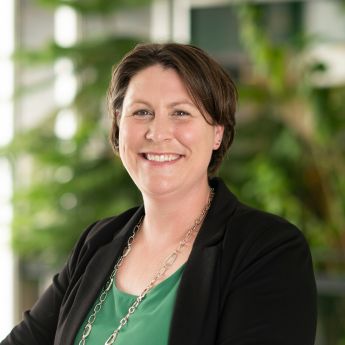
Assistant Professor, Carleton University
Tamara Sorenson Duncan
Tamara Sorenson Duncan is an assistant professor at Carleton University. Her research focuses on bilingual development in diverse populations. To date, this work has included children from immigrant and refugee backgrounds, children with developmental language disorder, and children with autism spectrum disorder. She is a co-author of numerous publications, including “Academic Achievement in English: Minority Home Language Students in Early French Immersion” (in press) and “How does maternal education influence the linguistic environment supporting bilingual development in child L2 learners of English?” (2020). Tamara has led popular workshops such as “Bilingualism and students with ASD: A world with possibilities” (a webinar for Atlantic Provinces Special Education Authority) and “Language development in children from immigrant and refugee backgrounds: What does it look like and why does it matter?” (a webinar for Speech-Language & Audiology Canada). Tamara was also interviewed by CASLT as part of the Languages Build video series.
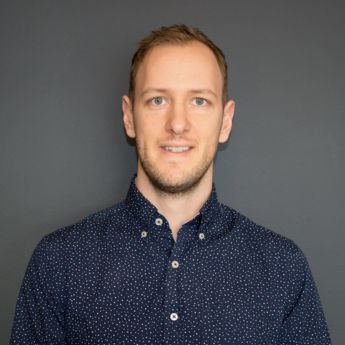
Teacher, Edmonton Public Schools
Quinton Stotz
Quinton Stotz’s quest for language began in a small Prairie town on the back of a cereal box but now intersects multiple contexts, motivations, ages, modalities, and language families, each of which adds a new layer to his teaching. In 2014, he received his B.Ed. (French major) with distinction from the University of Alberta and, in 2021, an MA in Applied Linguistics from Concordia University in Montréal. With experience teaching English as an additional language (EAL) in Québec City, he now teaches high school French as a second language (FSL), Advanced French, and EAL in Edmonton. His passion for language acquisition theory and pedagogy motivates him to advance best practices so that more students can learn about the world through its words.

Lecturer, Simon Fraser University
Monica Tang
For 20 years, Monica Tang has been involved in various levels of French Education and the French Immersion program. She is currently a Lecturer at the Faculty of Education at Simon Fraser University (SFU). Through her doctoral research on the bilingual identity of French teachers in British Columbia, she created a new course for pre-service teachers at SFU that offers them support in their linguistic identity. She has also developed a series of pedagogical resources for teachers to help support the development of a positive bilingual identity. From kindergarten to the graduate level, she seeks to help plurilingual teachers and students thrive and find joy in language learning. Monica was also interviewed by CASLT as part of the Languages Build video series.

Master’s Student, Carleton University
Jacob Williams
Jacob Williams (he/him) is completing his Master of Arts in Human Rights at Carleton University. His research interests include youth rights, health justice, grassroots advocacy, feminism, and disability justice. His thesis project investigates the impact of the rising cost of post-secondary education on teenagers’ ability to exercise autonomy within the family unit. Jacob has worked as a research assistant on several queer and disability-focused projects at Carleton and at McGill University. Outside of academia, he is involved with numerous community advocacy projects. Notably, in 2022, he founded the Montreal Trans Patient Union, where he still leads major projects.
